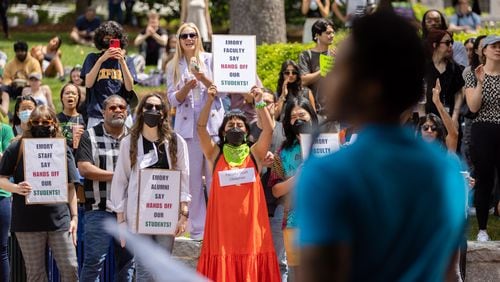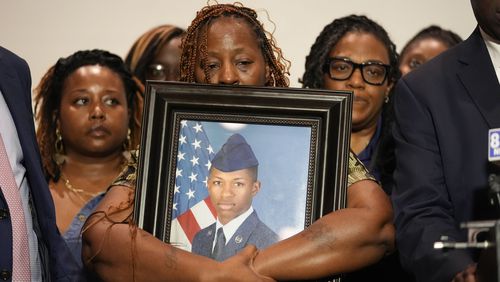Emory University has guidelines that regulate speech on campus, protests and posting sings that have been updated over the years. The policy includes “open expression observers” who have been on campus amid the recent campus protests.
The policy requests groups make reservations for demonstrations on campus within a reasonable time frame, but recognizes the potential for impromptu protests. Emory does not allow events, meetings and protests in some spaces unless a special exception is granted. Those locations include private offices, libraries, classrooms, auditoriums and medical facilities.
The restrictions include: “Outdoor and indoor locations when the free flow of traffic, both vehicular and pedestrian, is unreasonably impeded; when entrances or exits to private offices, classrooms, and meeting spaces are blocked; or when undue health and safety risks are created.”
The Vice President and Dean of Campus Life is responsible for enforcing the policy.
Emory called other law enforcement agencies last week after protesters made an encampment on its quad in the middle of its Atlanta campus.
The policy says community members serving as “Open Expression Observers” shall ensure impromptu protest and other events continue until it should otherwise be relocated to allow for prior scheduled activities, the policy says. The Dean of Campus Life and their designee may send Open Expression Observers on their behalf during events to enforce the policy.
Arrests must be the option of “last resort,” the policy says.
About the Author







